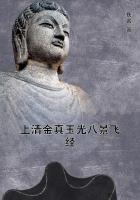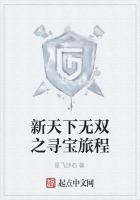I.THE STORY OF THE FOREST INN
Of all the great battles in which I had the honour of drawing my sword for the Emperor and for France there was not one which was lost.At Waterloo, although, in a sense, I was present, I was unable to fight, and the enemy was victorious.It is not for me to say that there is a connection between these two things.You know me too well, my friends, to imagine that I would make such a claim.But it gives matter for thought, and some have drawn flattering conclusions from it.
After all, it was only a matter of breaking a few English squares and the day would have been our own.If the Hussars of Conflans, with Etienne Gerard to lead them, could not do this, then the best judges are mistaken.
But let that pass.The Fates had ordained that I should hold my hand and that the Empire should fall.But they had also ordained that this day of gloom and sorrow should bring such honour to me as had never come when I swept on the wings of victory from Boulogne to Vienna.
Never had I burned so brilliantly as at that supreme moment when the darkness fell upon all around me.You are aware that I was faithful to the Emperor in his adversity, and that I refused to sell my sword and my honour to the Bourbons.Never again was I to feel my war horse between my knees, never again to hear the kettledrums and silver trumpets behind me as I rode in front of my little rascals.But it comforts my heart, my friends, and it brings the tears to my eyes, to think how great I was upon that last day of my soldier life, and to remember that of all the remarkable exploits which have won me the love of so many beautiful women, and the respect of so many noble men, there was none which, in splendour, in audacity, and in the great end which was attained, couldcompare with my famous ride upon the night of June 18th, 1815.I am aware that the story is often told at mess-tables and in barrack-rooms, so that there are few in the army who have not heard it, but modesty has sealed my lips, until now, my friends, in the privacy of these intimate gatherings, I am inclined to lay the true facts before you.
In the first place, there is one thing which I can assure you.In all his career Napoleon never had so splendid an army as that with which he took the field for that campaign.In 1813 France was exhausted.For every veteran there were five children--Marie Louises, as we called them; for the Empress had busied herself in raising levies while the Emperor took the field.But it was very different in 1815.The prisoners had all come back-- the men from the snows of Russia, the men from the dungeons of Spain, the men from the hulks in England.
These were the dangerous men, veterans of twenty battles, longing for their old trade, and with hearts filled with hatred and revenge.The ranks were full of soldiers who wore two and three chevrons, every chevron meaning five years' service.And the spirit of these men was terrible.They were raging, furious, fanatical, adoring the Emperor as a Mameluke does his prophet, ready to fall upon their own bayonets if their blood could serve him.If you had seen these fierce old veterans going into battle, with their flushed faces, their savage eyes, their furious yells, you would wonder that anything could stand against them.So high was the spirit of France at that time that every other spirit would have quailed before it; but these people, these English, had neither spirit nor soul, but only solid, immovable beef, against which we broke ourselves in vain.That was it, my friends! On the one side, poetry, gallantry, self- sacrifice--all that is beautiful and heroic.On the other side, beef.Our hopes, our ideals, our dreams--all were shattered on that terrible beef of Old England.
You have read how the Emperor gathered his forces, and then how he and I, with a hundred and thirty thousand veterans, hurried to the northern frontier and fell upon the Prussians and the English.On the 16th of June, Ney held the English in play at Quatre-Bras while we beat the Prussians at Ligny.It is not for me to say how far I contributed to that victory, but it is well known that the Hussars of Conflans covered themselves with glory.
They fought well, these Prussians, and eight thousand of them were left upon the field.The Emperor thought that he had done with them, as he sent Marshal Grouchy with thirty-two thousand men to follow them up and to prevent their interfering with his plans.Then with nearly eighty thousand men, he turned upon these "Goddam" Englishmen.How much we had to avenge upon them, we Frenchmen--the guineas of Pitt, the hulks of Portsmouth, the invasion of Wellington, the perfidious victories of Nelson! At last the day of punishment seemed to have arisen.















